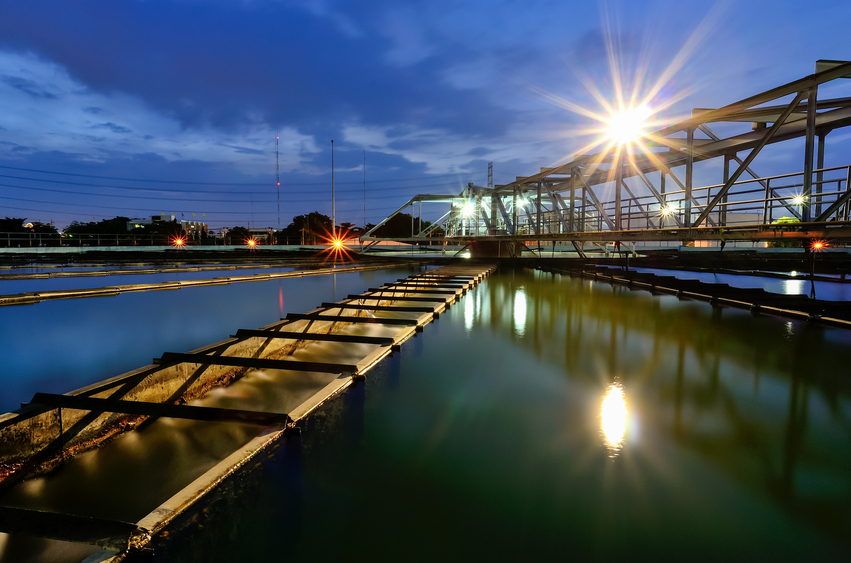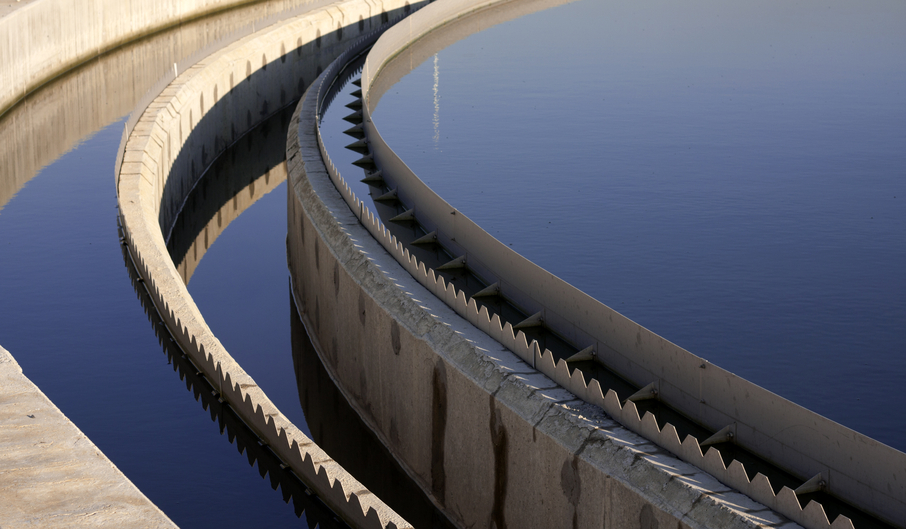Wastewater and Florida Laws, Rules & Ethics 18 PDH Discount Package 2
Courses in this Package
Wastewater Treatment System Performance Requirements (C08-003)
Centralized Wastewater Treatment for Facilities Managing Oil and Gas Extraction Wastes: Wastewater Characterization and Management (C02-077)
Centralized Wastewater Treatment for Facilities Managing Oil and Gas Extraction Wastes: Wastewater Management Practices (C04-058)
Pressure and Gravity Sewers (C02-068)
Engineering Laws, Rules and Ethics for Florida Professional Engineers (FL2-006)

This online engineering PDH course outlines essential steps for characterizing wastewater flow and composition and provides a framework for establishing and measuring performance requirements. It also describes methods for establishing and ensuring compliance with wastewater treatment performance requirements that protect human health, surface waters, and ground water resources. Furthermore, it describes the characteristics of typical domestic and commercial wastewaters and discusses approaches for estimating wastewater quantity and quality for residential dwellings and commercial establishments.
In addition, this course identifies the pollutants of concern in wastewaters and discusses the fate and transport of these pollutants in the receiving environment. It also presents the various technical approaches for establishing performance requirements for onsite systems, based on risk and environmental sensitivity assessments. Finally, it discusses performance monitoring to ensure sustained protection of public health and water resources.
This 8 PDH online course is applicable to civil, and environmental engineers, as well as design and construction personnel involved with the planning, selection and design of subsurface wastewater infiltration systems.
This PE continuing education course is intended to provide you with the following specific knowledge and skills:
- Estimating wastewater characteristics
- Estimating wastewater flow
- Understanding wastewater quality
- Minimizing wastewater flows and pollutants
- Integrating wastewater characterization and other design information
- Determining the transport and fate of wastewater pollutants in the receiving environment
- Establishing performance requirements
In this professional engineering CEU course, you need to review Chapter 3 of the USEPA Onsite Wastewater Treatment Systems Manual, EPA/625/R-00/008, "Establishing Treatment System Performance Requirements".
Upon successful completion of the quiz, print your Certificate of Completion instantly. (Note: if you are paying by check or money order, you will be able to print it after we receive your payment.) For your convenience, we will also email it to you. Please note that you can log in to your account at any time to access and print your Certificate of Completion.

This online engineering PDH course investigates whether the current Centralized Wastewater Treatment (CWT) Effluent Limitations Guidelines and Standards (ELGs) are adequately managing wastewater discharges from CWT facilities accepting oil and gas extraction wastes.
The EPA collected and evaluated data regarding oil and gas wastewater characteristics, as well as data characterizing discharges from CWT facilities accepting oil and gas extraction wastes, which are presented in this course.
The exploration, development and production of oil and gas reserves vary markedly from region to region. There are a number of solid and liquid waste materials generated during oil and gas exploration, extraction and production, and these waste materials may be managed by CWT facilities. The nature and characteristics and quantity of the wastes generated depend upon a number of factors, such as the type of drilling, the characteristics of the formation, the depth of the well and the type and quantity of chemical additives used during drilling, production and well maintenance activities.
This 2 PDH online course is intended for chemical, petroleum, environmental and industrial engineers as well as other interested in understanding the wastewater characterization and management used at CWT to treat oil and gas extraction wastewaters.
This PE continuing education course is intended to provide you with the following specific knowledge and skills:
- Familiarizing with the basics of the wastes that are discharged from oil and gas extraction activities
- Familiarizing with pollutants that are considered for evaluation in drilling wastewater
- Gaining an overview of the additives used in well development along with their purpose
- Familiarizing with pollutants that are considered for evaluation in produced water
- Familiarizing with characterizing the concentrations of pollutants in process wastewater discharges
Upon successful completion of the quiz, print your Certificate of Completion instantly. (Note: if you are paying by check or money order, you will be able to print it after we receive your payment.) For your convenience, we will also email it to you. Please note that you can log in to your account at any time to access and print your Certificate of Completion.

This online engineering PDH course provides an overview of wastewater treatment technologies that are applicable to the treatment of oil and gas extraction wastes used at centralized wastewater treatment (CWT) facilities managing these wastes.
The exploration, development and production of oil and gas reserves vary markedly from region to region. There are a number of solid and liquid waste materials generated during oil and gas exploration, extraction and production, and these waste materials may be managed by CWT facilities. The nature and characteristics and quantity of the wastes generated depend upon a number of factors, such as the type of drilling, the characteristics of the formation, the depth of the well and the type and quantity of chemical additives used during drilling, production and well maintenance activities.
CWT facilities that manage oil and gas extraction wastewaters use a variety of treatment technologies, depending on characteristics of the wastewater received and the treatment objectives.
This 4 PDH online course is intended for chemical, petroleum, environmental and industrial engineers as well as other interested in learning about the wastewater treatment technologies that are used at CWT to treat oil and gas extraction wastewaters.
This PE continuing education course is intended to provide you with the following specific knowledge and skills:
- Familiarizing with the following waste treatment technologies: chemical precipitation, filtration/flotation/ sedimentation and crystallization
- Understanding the following technologies: evaporation/condensation, reverse osmosis, and biological treatment
- Learning about the cost considerations of the listed technologies
- Understanding the capabilities and limitations of the listed technologies
Upon successful completion of the quiz, print your Certificate of Completion instantly. (Note: if you are paying by check or money order, you will be able to print it after we receive your payment.) For your convenience, we will also email it to you. Please note that you can log in to your account at any time to access and print your Certificate of Completion.

This online engineering courses is divided in to two parts: The first part discusses sewer systems that use pressure to deliver sewage to a treatment system. The second part discusses small diameter gravity sewers (SDGS) which convey effluent by gravity from a tank to a treatment location. Each part presents an overall description of the relevant topic along with the advantages and disadvantages of each system, design criteria, performance data, operation and maintenance and insights about cost related data.
Alternative wastewater collection systems can be cost effective for homes in areas where traditional collection systems are too expensive to install and operate. Pressure and gravity sewers are used in sparsely populated or suburban areas in which conventional collection systems would be expensive. These systems generally use smaller diameter pipes with a slight slope or follow the surface contour of the land; thereby, reducing excavation and construction costs. These systems convey effluent by gravity from an interceptor tank (or septic tank) to a centralized treatment location or pump station for transfer to another collection system or treatment facility.
This 2 PDH online course is applicable to civil, mechanical and environmental engineers, as well as design and construction personnel involved with the planning, design and installation of low pressure and small diameter gravity sewer systems.
This PE continuing education course is intended to provide you with the following specific knowledge and skills:
- Learning about the common types of alternative wastewater collection systems
- Understanding the advantages and disadvantages of each type of system
- Understanding the applicability of each system
- Familiarizing with the design criteria, performance data and operation and maintenance processes of each system
- Ability to compare conventional wastewater collection systems to alternative wastewater systems
Upon successful completion of the quiz, print your Certificate of Completion instantly. (Note: if you are paying by check or money order, you will be able to print it after we receive your payment.) For your convenience, we will also email it to you. Please note that you can log in to your account at any time to access and print your Certificate of Completion.

Upon successful completion of the “Engineering Laws, Rules and Ethics for Florida Professional Engineers” course, we will report your PDH credits for this course to the FBPE within 2 business days. Therefore, it is imperative that you indicate your Florida PE license number in your CED account so that we can successfully do so. Once reported, please allow up to 48 hours for the FBPE to update their database.
This online PDH course is a FL approved Engineering Laws, Rules and Ethics course and is being offered by Continuing Education and Development, Inc, a FL approved Continuing Education Provider (CEP No. 0004183).
The first part of this course begins with an overview of the Laws and Rules governing the practice of engineering in the State of Florida (Chapter 1) including:
- Florida Statutes, Chapter 455, “Department of Business and Professional Regulation”
- Florida Statutes, Chapter 471, “Engineering”
- Florida Administrative Code, 61G15, F.A.C., “Florida Board of Professional Engineers”
Then it continues to address the rules amended, adopted or otherwise repealed from 61G15, F.A.C. (Chapter 2) as well as the changes to Chapters 455, F.S. and 471, F.S. (Chapter 3), within the preceding biennium, as applicable.
The second part of this course presents engineering ethics and the principles of professional responsibility (Chapter 4). It further illustrates the application of Chapters 455 and 471, F.S. to a randomly selected set of ethical and disciplinary cases (Chapter 5).
This 2 PDH online engineering course is applicable to Professional Engineers licensed in the State of Florida and who are required to demonstrate continuing professional competency in the Florida Laws, Rules and Ethics as a condition of license renewal. For each renewal period, every licensee must complete eighteen (18) professional development hours as follows:
- One hour must relate to this chapter and the rules adopted under this chapter;
- One hour must relate to professional ethics;
- Four hours must relate to the licensee’s area of practice; and
- The remaining hours may relate to any topic pertinent to the practice of engineering.
This PE continuing education engineering course is intended to provide you with the following specific knowledge and skills:
- Understanding the different Florida laws and rules regulating the practice of engineering in the State of Florida and their application to Professional Engineers
- Learning the rules adopted, amended or repealed from 61G15 within the preceding biennium
- Learning the changes made to Chapters 455, F.S. and 471, F.S. within the preceding biennium
- Understanding ethical behavior and the principles of professional responsibility in the field of engineering
- Understanding the general application of Chapters 455 and 471, F.S. to various ethical and disciplinary cases of Professional Engineers
Upon successful completion of the quiz, print your Certificate of Completion instantly. (Note: if you are paying by check or money order, you will be able to print it after we receive your payment.) For your convenience, we will also email it to you. Please note that you can log in to your account at any time to access and print your Certificate of Completion.